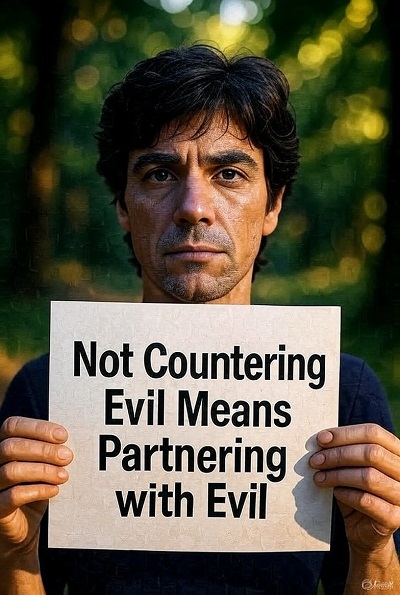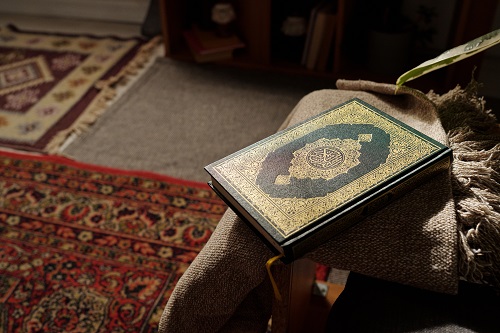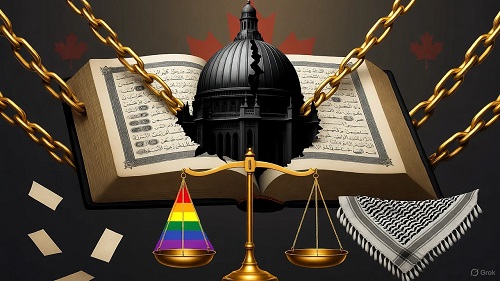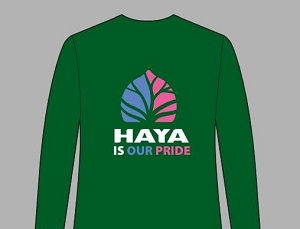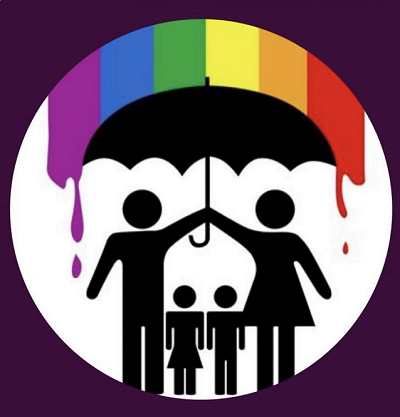Jamaat-e-Islami Hind (JIH) hosted a comprehensive one-day program at Delhi, India titled “Ideological Analysis of the LGBTQ+ Movement” on Sunday, August 18. Leading intellectuals and scholars at the event made presentations based on multidimensional analysis of the LGBTQ+ movement in ideological, psychological, medical, and sociopolitical perspectives.
The event was organized by Tahqeeq o Tasneef, a department of JIH. Mohiuddin Ghazi, Secretary JIH delivered the opening address that shed light on the concept to be discussed during the program. This was followed by the in-depth talk by Dr. Asif Hirani, Dean at Amal Institute, USA, who imparted the ideological underpinning of the LGBTQ+ movement.
Dr. Shadab Munawar Moosa, the Assistant Secretary of JIH, delivered a speech with long arguments regarding civilizational issues on the discourse of LGBTQ+.
In the afternoon, the perspectives were further broadened when Dr. Mohammad Rizwan, Director of CSR, spoke on psychological and biological aspects of the issue at hand. Vice president of JIH, S. Ameen ul Hasan talked about the educational approach to gender and sexuality. The socio-political impact of LGBTQ+ movements on Indian society was further illuminated by Abdussalam Puthige, editor of Vartha Bharati Kannada Daily, and The Companion’s Khushhal Ahmed.
The program concluded with Syed Sadatullah Husaini, President of JIH, summarizing the Islamic perspective on LGBTQ+ issues, followed by an open house session with all the participants.
Excerpts from the addresses
Mohiuddin Ghazi, JIH secretary, spoke on the topic ‘Quranic Paradigm to Morality and Ethics,’ commencing with a workshop session about relevance of LGBTQ+ movement in modern times looking through historical perspective. He argued that issues related to the LGBTQ+ have gained a lot of prominence in academics and policy-making circles and impact numerous domains across the globe.
Ghazi talked about how the Quran would condemn actions that it deemed unnatural for a human being, narrating an example from previously the people of Prophet Lut (peace be upon him) to reveal the level of intensity the acts are considered. He went on to say that the morality of the Quran had a clear message from Allah to guard one’s private parts and respect marriage, that a marriage bond can only exist between a man and a woman, therefore all relationships or sexual interactions outside the wedlock of marriage is considered sin.
The secretary concluded the speech by restating that the Holy Qur’an gives a clear ethical stance against homosexuality, which is considered a distortion of Nature’s Law and also stressed on living and acting according to Quranic guidelines.
Dr. Asif Hirani, a Dean at the Amal Institute in USA presented “Ideological Foundations of LGBTQ+ Movement” and conducted an elaborate analysis that broadly followed movement back to the sexual revolution (1960s-70s) which sought widespread transformation of traditional norms related to sexuality/gender.
Hirani analysed the postmodernism tendency to influence LGBTQ perspectives because it emphasized fluid and subjective identities rather than enforce universal standards of morality. He also examined the atheistic and relativistic attitudes to this normalization of LGBTQ+ identities in our societies.
He pointed out the conflicts with traditional values and religious beliefs, likely ethical dilemmas, and effects on social norms and institutions. He added his concerns over backlashes by society and the polarization that would occur based on those rapid cultural changes.
Dr. Hirani has also published many influential books as well: Islamic vs. Postmodern Paradigm of Sexuality, Guidelines for Men-Women Interaction in Islam and Rethinking the Rainbow Through the lenses of both Islam and postmodern theory these works delve in to different intellectual, as well existential discussions on sexuality and identity.
The author highlighted the significant societal shifts relating to attitudes towards queer identities and how one defends against such changes when those beaming wheels of contortions are grounded on strong moral/religious pedestals.
Dr. Shadab Munawar Moosa assistant secretary of JIH discussed ‘LGBTQ+: A Civilizational Challenge,’ exploring the ideological and civilizational influence of LGBTQ+ movements
He framed his discussion within the broader context of worldview formation, civilization, and culture, emphasizing the fundamental differences between Western and Islamic paradigms.
Dr. Moosa explained how the LGBTQ+ movement challenges traditional values and dogmas. He discusses how secular ideologies from the West shape global cultural norms and how LGBTQ+ advocacy reflects broader societal changes in acceptable sexuality and identities.
He opposed blindly copying Western models for Muslim society and warned that modernist interpretations and aggressive propaganda are undermining traditional and religious values. He also referred to individual historical and contemporary figures, as well as movements, shaping current debates, highlighting the necessity of understanding how these dynamics are working within the framework of Islamic teachings and civilizational integrity.
Dr. Moosa, best-selling author of ‘Technology and Us’, combines medical expertise with cultural and religious studies. He examines how cultural shifts impact traditional values and suggests a return to core religious principles to address these challenges.
Dr. Mohammad Rizwan, head of CSR, delivered a talk under the subject ‘Psychological and Biological Perspectives On LGBTQ+ Discourse,’ providing a detailed review of matters related to LGBTQ+ from psychological and biological perspectives.
He explained the basic terms and concepts and brought out the need for an academic, fact-based approach to understanding these complex issues. He shed light on how sexual orientation and gender identity are driven by genes and the environment, contrary to the perception that it is something innate or fixed.
Dr. Rizwan then presented the contemporary legal restrictions and therapeutic practices, particularly the banning of corrective therapies in India, which still further exemplifies the limitations and consequences of the former. His presentation concluded with a call toward further research and dialogue for the paradox of sexual fluidity and to understand the process of meaning-making related to identity and orientation.
S. Ameen Ul Hasan, Vice-President of JIH, spoke on ‘Tarbiyah and Education of Children: An Islamic Approach’ with special focus on the burning issue of sexual deviance and the imperative role of parents in protecting children from those influences.
He pointed out an unprecedented level of sexualization in the current society and what children are exposed to in the media, literature, and other everyday life. This almost full ‘on’ of sexualised content in everything creates a hostile environment for parents who really want to shield their children from early exposure.
He said that it is important to know what the current culture is all about, for at times even what seems innocuous has inappropriate messages. Hasan added that the best form of parenting should strike a balance between being authoritative and permissive and emulate God by being kind and forgiving.
He called for a proactive approach to education that enables children to arm themselves with the ability to negotiate and resist sexualized influences. The attention of his address was placed heavily upon the need for inculcating in children a heavy Islamic worldview to act against normalizing inappropriate behaviors, and making sure that they are appropriately educated in sexuality per Islamic teachings.
Abdussalam Puthige, Editor of Vartha Bharati Kannada Daily, presented the socio-political fall-out of the LGBTQ+ movement. He highlighted the widespread concern in society over LGBTQ+ trends; he compared it with a flood challenging moral values across the world. Puthige also said that there is a dire need to understand the LGBTQ+ movement in its proper perspective and what its influence on media, economics, and change of cultural norms are.
He spoke of an escalating pattern in visibility and acceptance that ranged from same-sex marriage to corporate policies friendly toward LGBT, and against misleading statistics and propaganda.
Puthige appealed to people to take an active approach in countering these trends: to foster clear responses with compassion and to develop alternative trends that go with traditional values. The editor has also called for a differentiated understanding of the movement—to distinguish between those people in real need and the promoters of ideology.
Khushhal Ahmed, The Companion’s Editor, led a discussion on ‘LGBTQ+ and Indian Society’. He explained the change in perception towards homosexuality within Indian society by various historical and cultural perspectives.
He pointed out three major streams of appropriating same-sex relationships in Indian culture:
1. Friendship-Based Intimacy: Found in texts such as the Mahabharata, in which same-sex relationships develop from very close friendship-like relationships into more intimate relations.
2. Mythological Narratives: The dealings of Vedic gods are referred to as Vishnu’s Mohini avatar as some of the first same-sex relationship representations.
3. Bhakti Movement: This era, the medieval period, in some cases, reinvented divine relationships with the deity as a lover or spouse, thereby reconstructing fluid gender constructs.
Ahmed discussed the influence of British colonialism, where the imposed anti-sodomy laws had a bearing on the societal attitude toward homosexuality. He showed that from the tectonic shift in perception during Nehru's time, with its acknowledgment of a homosexual presence in history, the contemporary challenges have been influenced by right-wing ideologies.
The address took into account the new developments ever since 2018 with the decriminalization of Section 377, through the efforts of organizations like the Naz Foundation and the Humsafar Trust. These two have been at the forefront of organizing events and activities that generate support and increase visibility with other LGBTQ+ groups. Ahmed highlighted Pink Capitalism in which corporate sponsored en masse support for LGBTQ+ rights.
Ahmed said understanding these historical and cultural backgrounds is key to counter modern-day issues surrounding LGBTQ+ in India.
Syed Sadatullah Husaini, JIH President spoke on ‘Islamic Paradigm and LGBTQ+ Discourse,’ representing the holistic view of Islam pertaining to the LGBTQ+ movement. He further said that today's gathering is merely a beginning for discussing this sensitive issue, and, in the near future, more comprehension and debate regarding this matter shall follow.
Husaini articulated that, from an Islamic viewpoint, sexual orientation and morality are defined by Allah’s commandments. He underscored that Islam views sexual relationships exclusively within the bounds of heterosexual marriage as sanctioned by divine law, contrasting this with the Western emphasis on individual rights.
He also introduced four very basic questions that deal with social morality, family, sexual desire, and the individual’s rights, thereby differentiating the Islamic paradigm from the Western.
The President's address emphasized the protection of family structure and children’s rights, citing that the LGBTQ+ movement could pose a threat to these very basic social units. Husaini asked the attendees of the program to read Dr. Hirani’s book on homosexuality. He appreciated the perspectives of all the distinguished speakers and said mature discourse on the subjects is important and should continue.
The program organized by Tahqeeq o Tasneef aimed to create an informed dialogue on critical social issues. The program concluded by rallying for a strong and bold Islamic response to the LGBTQ+ movement. This means keeping a sharp eye and awareness of this movement, and Muslims to be proactive in maintaining the teachings of Islam on sexuality and gender. In the wake of an ideological challenge, it is the responsibility of every Muslim to uphold the integrity of family structures and moral values.
Our Contact:
AsSeerah@As-Seerah.com
X: @AsSeerah
E-mail Group:
AsSeerah+subscribe@groups.io
Join As-Seerah What’s app announcement Group
https://chat.whatsapp.com/DCiY9TcRNAq523g9QXjUi1
